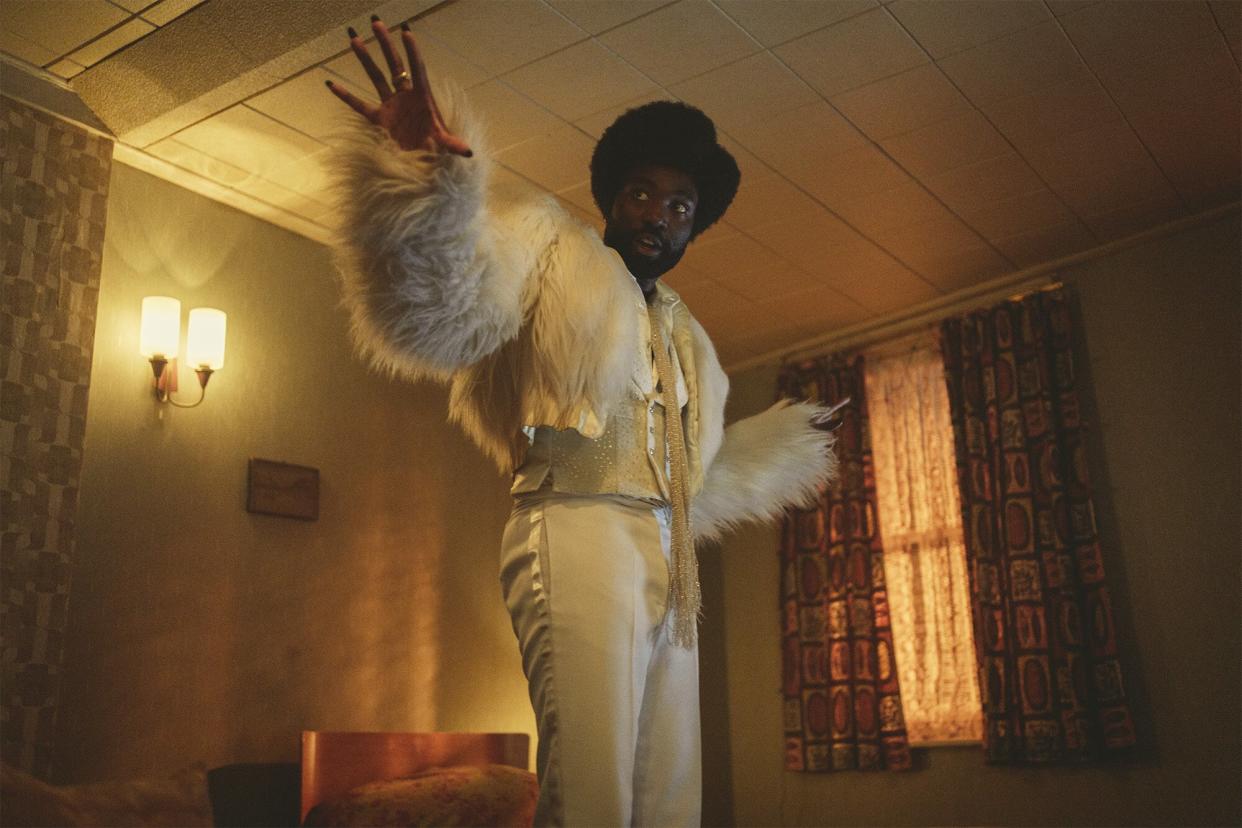How Black Mirror season 6 defies genre expectations

- Oops!Something went wrong.Please try again later.
- Oops!Something went wrong.Please try again later.
Warning: This article contains spoilers for Black Mirror season 6.
Over its first five seasons, Black Mirror's dystopian sci-fi stories proved uncannily capable of predicting the near future. "The National Anthem" was validated by a real-life scandal around former British leader David Cameron, "The Waldo Moment" manifested in the political success of Donald Trump and the Brexit movement, and "The Entire History of You" recently became an Apple commercial (which even reminded creator Charlie Brooker of his own show).
That trend continues with the new season, which kicks off with a metafictive episode about the rights we sign away to tech companies without thinking and the ability of AI technology to replicate the likenesses of real people… and lands right in the middle of ongoing Hollywood labor disputes about future uses of AI. But if "Joan Is Awful" felt like exactly what you'd expect from Black Mirror, the rest of the season zigs where you might expect it to zag.
"Loch Henry," the second episode of season 6, is mostly about our current glut of true-crime documentaries rather than technology as such. After that, things get even weirder. "Demon 79," the season finale, is true to its title in that a literal demon (Paapa Essiedu) haunts a regular woman (Anjana Vasan) and convinces her that she has to murder people to avoid the apocalypse.

Nick Wall/Netflix Paapa Essiedu in 'Black Mirror' season 6.
"Mazey Day," though, has the most surprising twist of all. When the titular celebrity (Clara Rugaard) goes missing after a hit-and-run incident, down-on-their-luck paparrazzi (Zazie Beetz and Danny Ramirez) pursue her for the big-money reward for the first picture since her disappearance. They expect to find her going through the kind of intense drug binge (or rehabilitation) that you might see on a show like Euphoria. Instead, they are astonished to find that the person Mazey Day hit with her car was a werewolf… and now she's one, too!
"I thought it was really brave of Charlie to deviate from the basis in technology that we've come to know Black Mirror for," Beetz tells EW. "I like that he is trying something new with introducing a supernatural element versus a futuristic element. I think he did so successfully. You still achieve the same exploration of the human condition, about how we interact with each other and the consequences that certain decisions can lead to. I was excited to be part of a new iteration of the show."

Netflix Zazie Beetz in season 6 of 'Black Mirror.'
Brooker definitely expanded the scope of Black Mirror this season. That may explain why he recruited Ms. Marvel head writer Bisha K. Ali to write "Demon 79" with him, even though the vast majority of Black Mirror episodes are credited to Brooker alone.
"I started in a way thinking, 'Well, I don't want to write another episode about what I've already written lots of episodes about,'" Brooker said in a recent interview with Wired. "One way to stop yourself from doing that is to almost delete from your head the idea of what a Black Mirror episode is and think 'f--- it' and start writing something else."
Brooker continued, "We weren't meant to be 'this is what's going on in technology this week.' It was always designed to be a more paranoid and weird and hopefully unique show."
Black Mirror season 6 is streaming now on Netflix.
Sign up for Entertainment Weekly's free daily newsletter to get breaking TV news, exclusive first looks, recaps, reviews, interviews with your favorite stars, and more.
Related content:

